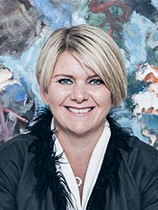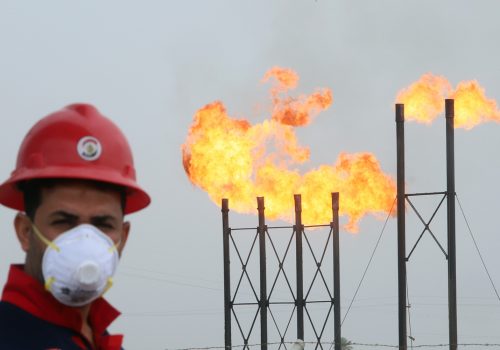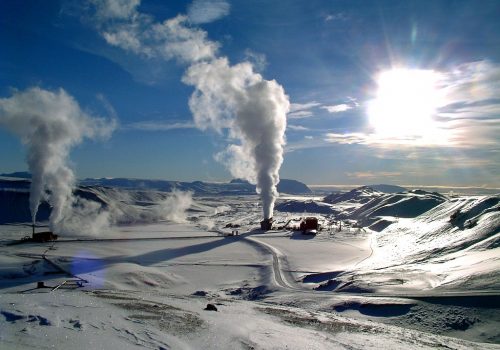Events
All Content
Ragnheiður Elín Árnadóttir is a nonresident senior fellow with the Atlantic Council’s Global Energy Center. From 2013 to 2017, Ms. Árnadóttir was the minister of industry and commerce in Iceland, a position that included a wide portfolio such as energy, industry, tourism, innovation, film industry, design, and commerce. Ms. Árnadóttir was an elected member of Parliament for the Independence Party from 2007 to 2016 and chairman of the party’s Parliamentary group from 2010 to 2012. She held positions in several standing committees in the Parliament, including: Committee on Economics and Taxation (2007-09), Committee on Industry (2007-09), Committee on Foreign Affairs (2007-13), and Committee on Business and Commerce (2010). Ms. Árnadóttir was a member of the Icelandic Delegation to the NATO Parliamentary Assembly from 2007 to 2013 and served as chairman from 2007 to 2009.
Before she was elected to Parliament, Ms. Árnadóttir served as the political adviser to the minister of finance (1998-2005), the minister for foreign affairs (2005-06), and the prime minister (2006-07). She worked for the Trade Council of Iceland from 1995 to 1998, both in New York as vice commercial counsellor and later as commercial counsellor, and in Reykjavík as project manager. Ms. Árnadóttir served as the executive director of the Icelandic American Chamber of Commerce from 1996 to 1997.
Ms. Árnadóttir graduated from the University of Iceland in 1991 with a BA degree in political science, and an MSFS degree from Georgetown University in 1994. She was invited to attend the Georgetown Leadership Seminar in 2007.Other professional responsibilities include a membership on the Icelandic Public Sector Wage Negotiation Committee (1999-2005), an alternate member of the board of directors of the Nordic Investment Bank (2002-06), and a member of the board of Iceland Naturally (2005-07) and Iceland Naturally Europe (2006-07). Ms. Árnadóttir was a vice chairman of the board of directors of the Alliance of European Conservatives and Reformist from 2011 to 2015.Ms. Árnadóttir is married to Guðjón Ingi Guðjónsson; she has two sons and two stepdaughters.



